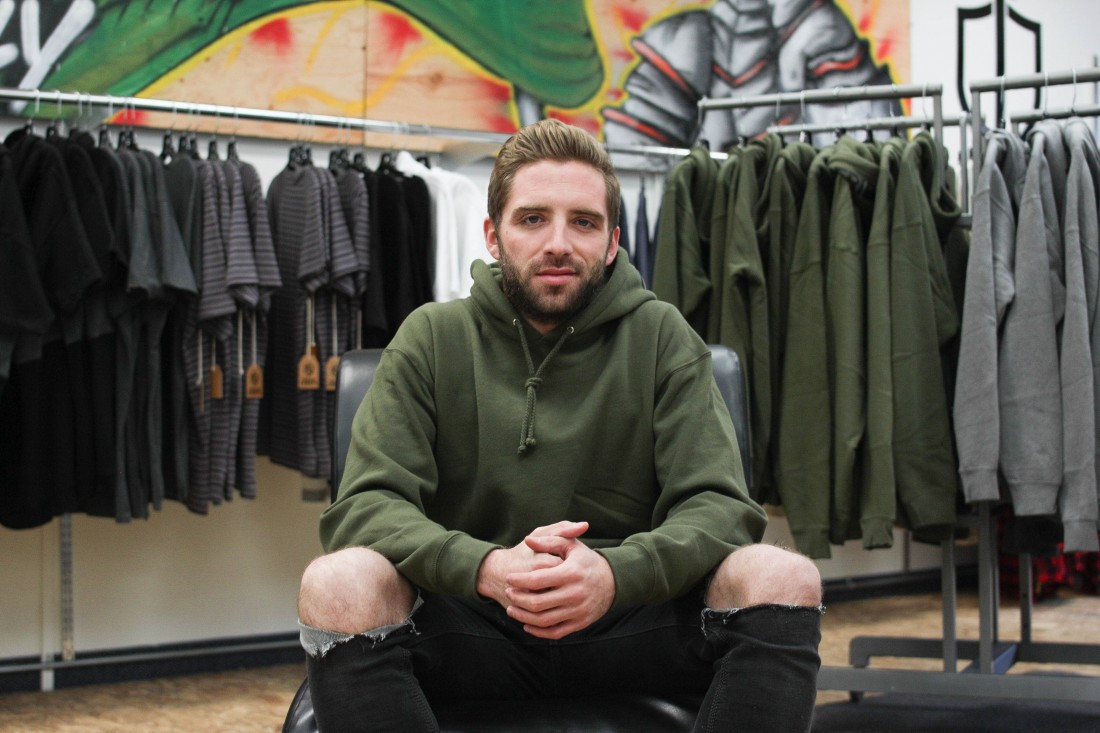Winnipeg pride and its many creative sides
Recent intellectual property issues in Winnipeg’s art community
Winnipeg’s art and design community produces a lot of work about Winnipeg and Manitoba, and in the last few months, the pervasiveness of city pride has led to some thorny situations regarding intellectual property ownership.
In January, Friday Knights, a Winnipeg-based clothing company, produced merchandise with the the City of Winnipeg logo with part of “Winnipeg” deemphasized, so that it said “Win.”
Eric Olek, owner of Friday Knights, says the Win design started as a sticker and was very popular, leading to the hoodie version.
After being sent a cease and desist (C&D) letter from the City that requested they stop using the logo, Friday Knights produced hoodies with the letter printed in on it.
Olek says that “in the streetwear business, a C&D is always kind of a trophy. I’m not going to lie, I have it framed on my wall. I wasn’t mad that they asked me to stop producing them. I understand where they’re coming from. But I was more upset that they were making that a priority over other things.”
Olek says when Friday Knights tried to license the logo and donate the proceeds to Main Street Project, they “received resounding ‘nos’... Their big thing was that we didn’t get permission. We sought permission and didn’t receive it, even in efforts to raise money for a good cause.”
Kristin McPherson has experienced the other side of intellectual property ownership issues. McPherson runs Happyland Print Shop, a design company that is “inspired by weird Winnipeg” and had produced “Weinerpeg” merch for five years before a business in The Forks opened up under the same name and applied for a trademark on the word.
“My concern was that, seeing as they had applied for a trademark, they could then force me to stop creating the work I’ve been creating for years,” she says. “I’d be so open to working with anyone in the city. I just think of what a positive story it would have been if they had engaged me on this, which I was and potentially would still be open to.”
McPherson says she’s often had people tell her that she doesn’t own the phrase “Weinerpeg,” a position she understands, “but there’s a big difference between saying something and applying branding or design to it and publishing it and selling it and promoting it.”
“I’m in a situation that I feel like could happen again, because these things are common phrases,” she says.
She says some things in the “Winnipeg pride” art category are really common and generally considered fair game for all artists to riff on, like maps or wheat or bison, but that with art around extremely specific regional subjects, things get more grey. “Is this a good area to produce in if you’re worried about being ripped off? I don’t mean that I have been, but it’s tricky,” she says.
Public signage and logos seem to be an area where those rules aren’t very consistent. “There’s tons of local art that is inspired by or a direct derivative of municipal or provincial signage,” Olek says. “It’s kind of messed up to try to censor artwork like that, especially when people are trying to show pride in their city.”
Published in Volume 74, Number 20 of The Uniter (March 5, 2020)








